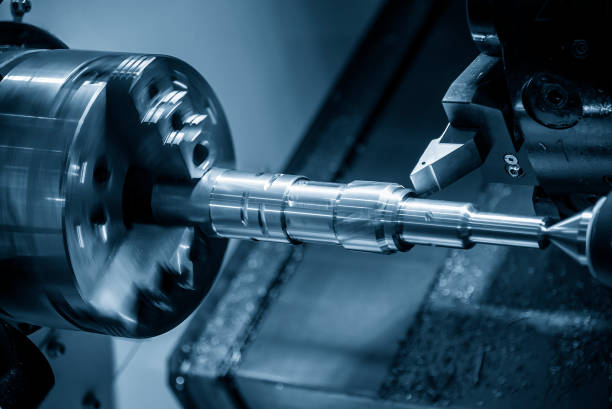Starting a CNC router business can be a rewarding and profitable endeavor, especially in today’s technology-driven landscape where demand for precision manufacturing is ever-growing. If you’ve ever dreamed of working independently, creating unique designs, and tapping into the industrial or creative markets, then a CNC router business might be the perfect opportunity for you. In this guide, we’ll walk you through everything you need to know about starting your own CNC router business, from choosing the right equipment to finding clients and managing day-to-day operations.
Understanding the Basics of a CNC Router Business
A CNC router business revolves around using Computer Numerical Control (CNC) technology to manufacture items. CNC routers are versatile machines that use computer-controlled commands to cut, carve, and shape materials such as wood, plastics, metal, and foam. The precision that CNC routers offer makes them highly desirable for various applications, including sign-making, furniture production, and artistic projects.
What is a CNC Router?
A CNC router is a computer-controlled cutting machine. Unlike manual routing machines that require hand-guided movement, CNC routers follow programmed instructions to perform precise cutting operations on a variety of materials. The “Computer Numerical Control” aspect of CNC allows the router to receive detailed commands on where to move, how fast to go, and what depth to cut.
Key benefits of using a CNC router include:
- Accuracy: CNC routers produce highly precise cuts that are difficult to achieve manually.
- Repeatability: CNC programming enables identical parts to be produced with consistency, ideal for mass production.
- Versatility: CNC routers can work with a wide variety of materials, making them suitable for numerous industries.
Why Start a CNC Router Business?
Here are some compelling reasons why a CNC router business is a great opportunity:
- Growing Demand: The market for customized products, signage, furniture, and precision parts is expanding.
- Creative Outlet: If you have a passion for design and creativity, CNC routing provides an excellent platform to explore your ideas.
- Profitability: With the right equipment and business plan, CNC routing can be a lucrative business.
For example, investing in a robust spindle can help you achieve higher productivity and better results. If you’re looking to start strong, consider our 2.2KW ER16 Air-Cooled Spindle. It’s designed to deliver reliability and precision, key for a start-up CNC business.
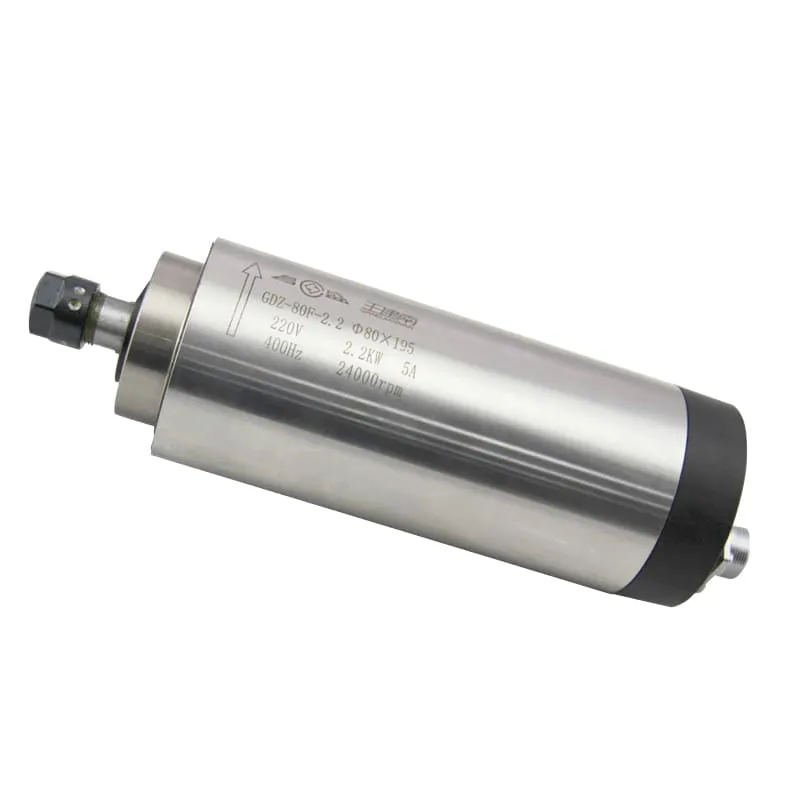
Choosing the Right CNC Router for Your Business
Selecting the right CNC router is critical to the success of your business. Your choice should depend on the types of products you want to manufacture, the materials you’ll use, and your budget.
Key Factors to Consider When Choosing a CNC Router
- Size and Cutting Area: Depending on what you plan to produce, consider whether you need a larger cutting bed or a compact machine. For example, furniture production would require a larger cutting bed compared to smaller, detailed carvings.
- Spindle Type: The spindle is an integral part of a CNC router, and its power and speed are important factors in determining the types of materials you can cut and the quality of the finish. Higher-powered spindles can cut harder materials and operate at higher speeds.
- Control System: The CNC router’s control system interprets G-code to execute precise cuts. Ensure that the control system is compatible with CAD/CAM software that you plan to use.
- Vacuum System: A vacuum table helps hold materials in place during cutting. This can improve accuracy and make production more efficient.
Recommended CNC Routers
Here are some of the CNC routers that are highly recommended for a small-scale start-up business:
- Entry-Level CNC Routers: Suitable for beginners who want to produce small signs, decorations, or custom items.
- Mid-Range CNC Routers: More robust and capable of producing medium to large parts, ideal for furniture or cabinetry.
- Industrial-Grade Routers: These routers are suitable for large-scale operations and can handle more challenging materials.
For those planning to use their CNC for larger workloads, the 24000RPM 1.5KW ER16 Water-Cooled Spindle offers an ideal combination of power and cooling capability, making it perfect for demanding projects.
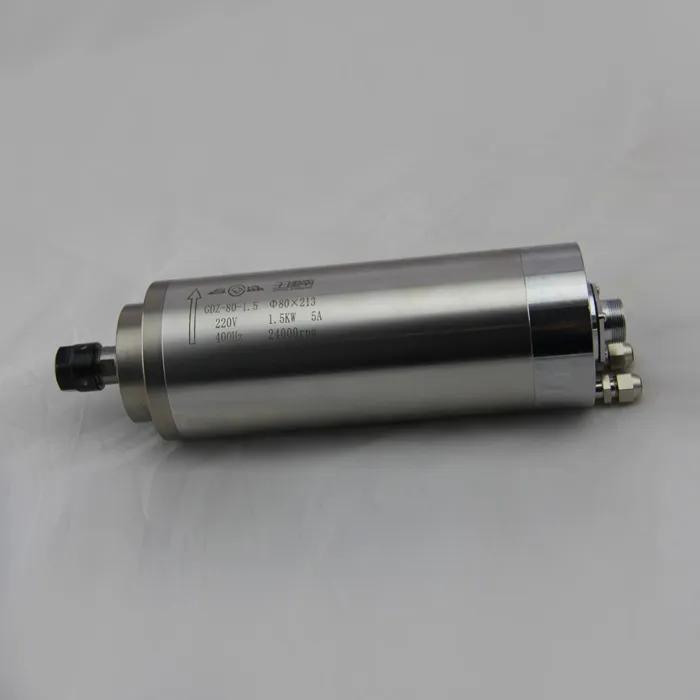
Business Plan Essentials for a CNC Router Business
A well-thought-out business plan is the foundation of a successful CNC router business. Your business plan should cover all the critical aspects of launching and running the business, from finance to operations.
Key Elements of a CNC Router Business Plan
- Market Research: Understand the target market and identify customer segments. Who needs CNC router services in your area? Furniture makers, sign companies, and artists are potential markets.
- Investment and Budgeting: The cost of starting a CNC router business includes equipment, software, workspace, marketing, and initial inventory. Allocate a budget for each item and prepare for ongoing maintenance costs.
- Business Location: Decide whether you will operate out of a dedicated workshop, home garage, or commercial space. Keep in mind that CNC routers can generate noise and dust.
- Services Offered: Determine what services you’ll offer—whether it’s custom furniture, sign making, prototyping, or art installations. You might decide to specialize or offer a broad range of services.
Financial Considerations
- Startup Costs: Includes the cost of purchasing a CNC router, spindle, vacuum systems, safety equipment, and software.
- Ongoing Costs: Consider tool replacement, maintenance, electricity, and consumable materials.
- Revenue Streams: Revenue can come from custom projects, mass production for local businesses, or even online orders.
A versatile tool like the 24000RPM 0.8KW ER11 Water-Cooled Spindle can be a cost-effective solution for those just starting, balancing performance and price.
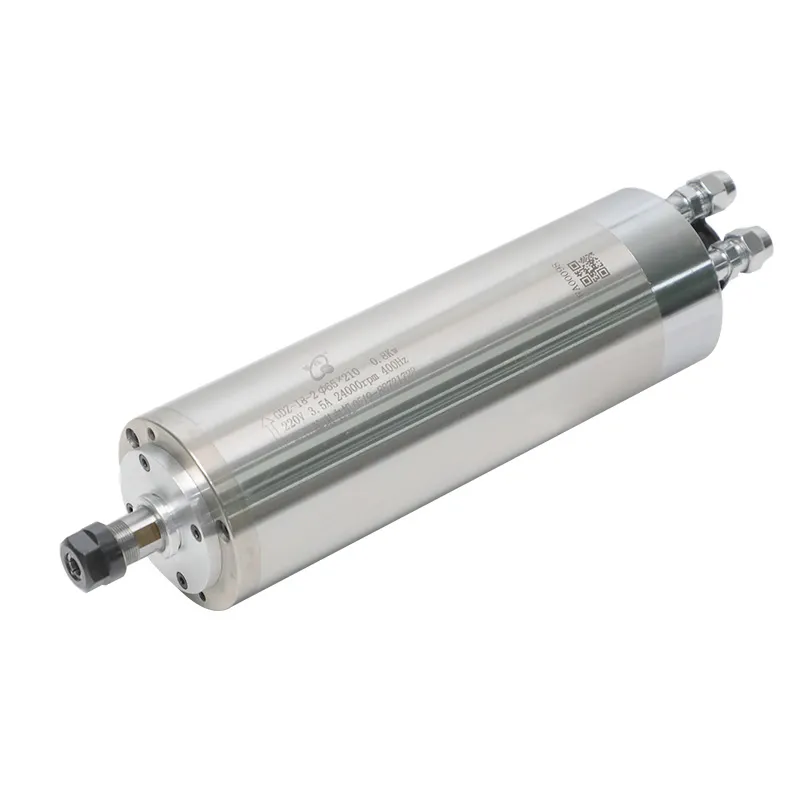
Finding Clients and Marketing Your CNC Router Business
Marketing plays a vital role in the growth and sustainability of your CNC router business. You’ll need to establish a strong brand identity, find customers, and promote your services effectively.
Identifying Potential Customers
Potential clients for your CNC router business include:
- Furniture Manufacturers: Many companies may outsource certain aspects of their production, such as intricate designs or prototype work.
- Artists and Designers: Artisans and artists often require precision cutting and carving for their projects.
- Sign Companies: Signage production is a profitable niche with consistent demand.
- Architects and Builders: CNC routers can be used to create customized architectural details and installations.
Effective Marketing Strategies
- Online Presence: Create a website showcasing your products, capabilities, and previous projects. Use SEO to improve your ranking on search engines. CNC Spindles can be a valuable addition to showcase the quality products your business is capable of producing.
- Social Media Marketing: Utilize platforms like Instagram, Pinterest, and Facebook to display your creative work. Posting videos of the CNC router in action can be very engaging.
- Local Advertising: Attend trade shows and fairs, distribute flyers, and collaborate with other local businesses that may benefit from your services.
- Online Marketplaces: Sell custom products through online platforms like Etsy and Amazon Handmade.
Day-to-Day Operations of a CNC Router Business
Running a CNC router business involves more than just cutting parts and delivering orders. Effective management of daily operations ensures that your business runs smoothly and profitably.
Production Workflow
- Order Management: Begin with customer consultation to understand their needs. A CAD design is then created, followed by programming the CNC router.
- Material Procurement: Stocking the right materials is key to fulfilling orders promptly. Establish relationships with local suppliers to source wood, plastic, acrylic, or metal efficiently.
- Tool and Equipment Maintenance: Regular maintenance is vital to keeping your CNC router running at its best. Spindle motors, for instance, need to be checked for signs of wear, and bearings may need periodic lubrication.
Managing Customer Relations
- Consultation and Design Approval: Customers must be involved in the design phase. CAD models should be shown to clients for approval before cutting begins.
- Quality Assurance: Inspect each completed part to ensure it meets customer expectations and industry standards.
- After-Sales Service: Offer follow-up services like installation or finishing to improve customer satisfaction and generate repeat business.
Expanding Your CNC Router Business
Once you’ve established your CNC router business, you can consider expanding to increase profits and market reach. Below are a few options for scaling your CNC router business:
Adding New Services
Expand your product offerings to attract a broader audience:
- Laser Cutting: Integrate a laser module to offer precise engravings and intricate details.
- 3D Carving: Adding a rotary axis can enable your CNC router to create three-dimensional carvings and sculptures.
- CNC Milling: Consider expanding into CNC milling, which allows you to work with metals and create parts with tighter tolerances.
Training and Outsourcing
Hiring skilled employees or offering CNC router training programs can help you expand operations without overloading your schedule. Alternatively, you could outsource some of the production to other CNC router businesses.
Automating Your Workflow
Automating repetitive tasks can greatly increase your business’s efficiency. Invest in automation technologies like robotic material loading systems, which can feed materials into the CNC router, thereby saving time and reducing labor costs.
If you’re looking for spindle upgrades to support automation, the 24000RPM 3.2KW ER20 Water-Cooled Spindle could be an ideal choice, offering the power and speed needed for continuous operations.
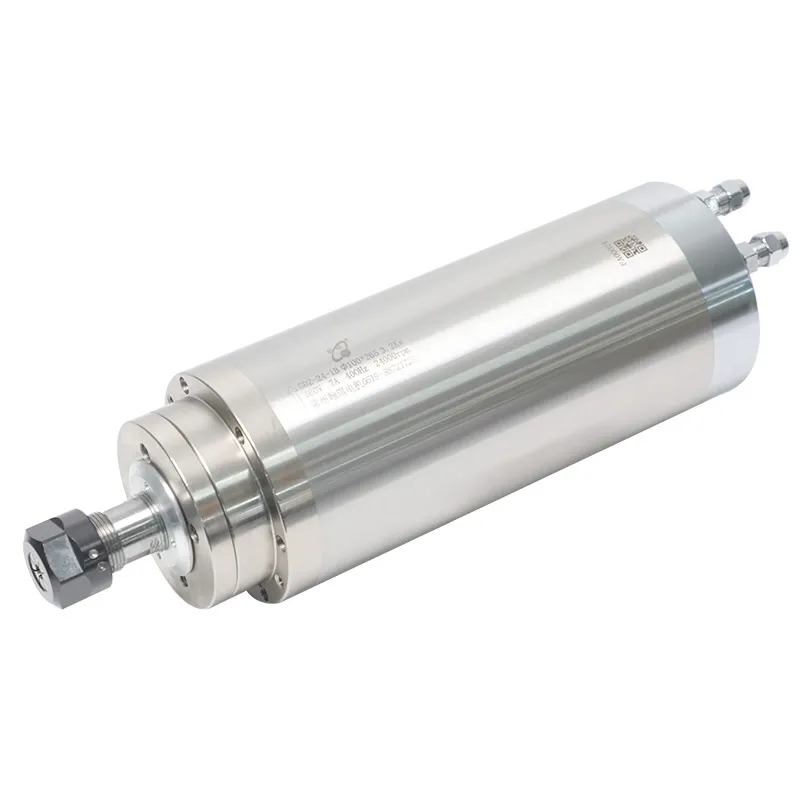
Frequently Asked Questions
1. What are the best materials for CNC routing?
The best materials for CNC routing include wood, acrylic, aluminum, and plastics. CNC routers work well with softer materials, but high-power spindles can cut certain metals too.
2. How much initial investment is needed for a CNC router business?
The initial investment ranges from $5,000 to $50,000 depending on the quality and size of the CNC router, the type of spindle, and the workspace setup.
3. How do I attract customers to my CNC router business?
Establish a strong online presence, attend local trade shows, and collaborate with businesses that require precision cutting. Offering services on online marketplaces can also help.
4. Is CNC routing profitable?
Yes, CNC routing can be highly profitable if you focus on niche markets such as custom furniture, sign-making, or art installations.
5. What is the advantage of using water-cooled spindles over air-cooled spindles?
Water-cooled spindles tend to run cooler and quieter, offering better performance for continuous operation. They are generally more efficient than air-cooled spindles in high-volume applications.
Conclusion
Starting a CNC router business can be an exciting and profitable endeavor. By selecting the right CNC router, creating a detailed business plan, marketing effectively, and managing daily operations efficiently, you can build a successful venture that stands out in a competitive market. Whether you are a hobbyist looking to turn your passion into profit or an experienced machinist seeking independence, the path to starting a CNC router business is achievable with the right guidance and tools.
For all your CNC spindle needs, be sure to explore our extensive collection at CNC Spindles. The right equipment can make all the difference in your productivity and product quality, helping you grow your CNC router business and meet the demands of your customers effectively.

